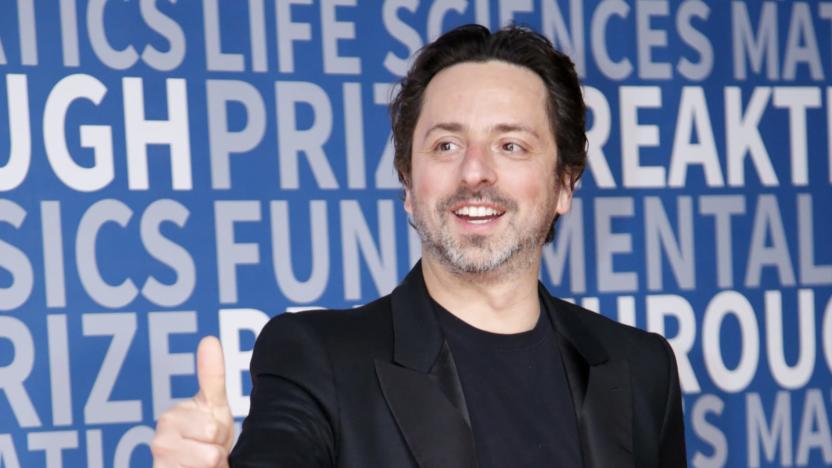lifesciences
Latest

Alphabet's Verily details its research-focused health watch
Google has made a smartwatch, but not the kind you might expect. Verily, the health organisation owned by Google parent company Alphabet, has (finally) announced its 'Study Watch' for medical research purposes. It doesn't run Android Wear, nor does it help you manage the notifications on your phone. Instead, it passively captures health data "critical to the success of continuous care platforms and clinical research," including heart rate, electrodermal activity (the skin's ability to conduct electricity) and body movement. It can also produce an ECG, a recording of the heart's electrical activity, which can sometimes reveal heart problems.

Breakthrough Prize awards $25 million to science luminaries
In a ceremony dubbed the "Oscars of Science," the Breakthrough Foundation handed out over $25 million in prizes to physicists, life sciences researchers and mathematicians. Hosted by Morgan Freeman, the event featured Mark Zuckerberg, Sergey Brin and other Silicon Valley notables, a performance by Alicia Keys, actors Vin Diesel and Sienna Miller, astronauts Mark and Scott Kelly and (yep) Will.i.am. The $3 million Breakthrough Prize awards are "the largest individual monetary prize[s] in science," the foundation says, and obviously life-changing. "I was totally stunned," says Lebanese-born Baylor scientist Huda Zoghbi.

Verily's wearable microscope sees beneath your skin
UCLA and Verily, Google Alphabet's life sciences division, has developed a wearable microscope that could help doctors in the near future. The device is designed to track fluorescent biomarkers inside the skin, a vital tool used to detect certain cancers and to monitor the delivery of drugs inside a person's body. These biomarkers are, essentially, glow-in-the-dark dyes that medical professionals can follow as they journey around your veins.

Google Life Sciences transforms into Alphabet spinoff Verily
Google X's Life Sciences group has grown up to become a full-fledged member of Mountain View's Alphabet Inc., and it's even taken on a new (and curious) name: Verily. Yes, that's an archaic word for "truly" and "certainly," chosen because the group wants to "reveal a true picture of health and disease." It's still the same team that was originally formed to create those contact lenses that can track diabetes, except it's bigger now, with more doctors, engineers and even a staff philosopher to understand why people do what they do.

Google Life Sciences is working on another diabetes-monitoring project
A few weeks ago, Google's Life Sciences division (which falls under Alphabet) announced plans to work with Dexcom on a miniature glucose tracker. The division that handles Mountain View's health-minded efforts is also teaming up with Sanofi, a pharmaceutical company that makes diabetes medication. The collaboration aims to find new ways to monitor and treat the medical condition that affects nearly 30 million people in the US alone. The partnership includes the development of a small device that continuously gathers stats and software that uses the collected info to find new courses of treatment. Life Sciences head Andrew Conrad says Sanofi's experience with insulin could help Google build a connected device that could provide dosage recommendation or automatically adjust medication levels based on a patient's blood sugar readings. "With Sanofi we can complete the picture of how diabetes unfolds and try to interrupt that development through a proactive and preventive approach," Conrad explained. This is the latest in the Life Sciences division's ongoing medical projects, and now that there's a renewed focus, we're likely to see more partnerships in the near future. [Image credit: Chris Goodney/Bloomberg via Getty Images]

Google's Life Sciences division to build a miniature glucose tracker
A pin-prick from a finger stick is a daily ritual for about 10 percent of the American population. According to the Centers for Disease Control and Prevention, 29.1 million people in the United States have diabetes. In most cases, the condition requires long-term medication and lifestyle changes that are based on the patient's daily glucose levels. Dexcom, a California-based company known for its diabetes-management devices, has partnered with Google's Life Sciences division (now a subsidiary of the much-talked about Alphabet) to develop a miniature product line of its existing continuous glucose monitoring (CGM) system. The new disposable version of the slap-on sensor could potentially replace the bulk of blood-monitoring devices.





